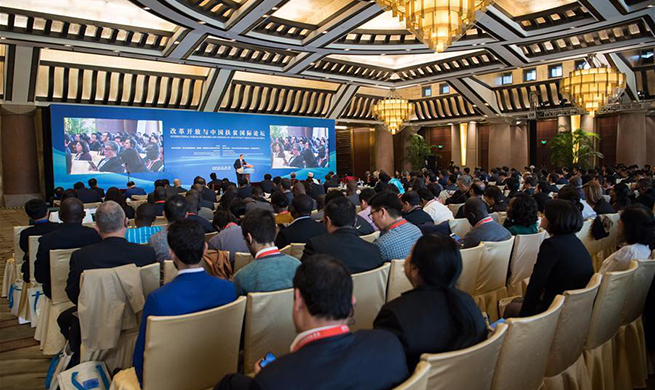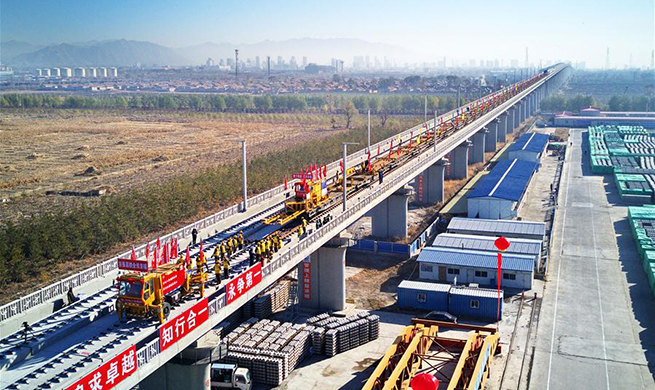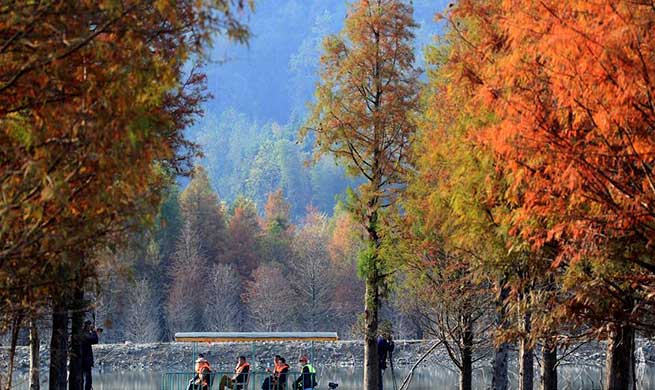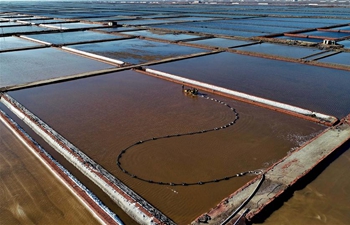by Yuan Liang
BUDAPEST, Nov. 1 (Xinhua) -- Ties between China and Hungary have expanded rapidly in recent years, with advances made in political, trade and people-to-people relations.
The Belt and Road Initiative and the "16+1" cooperation mechanism have pushed China-Hungary relations to a new level. According to Chinese Ambassador to Hungary Duan Jielong, "the relations between China and Hungary have entered the best period in history."
Firstly, China and Hungary keep frequent high-level exchanges and the two countries enjoy a profound friendship.
Hungary signed the memorandum of understanding over China's Belt and Road Initiative in June 2015, becoming the first European country to establish a Belt and Road working group with China, which signifies a successful docking of the China-proposed initiative with Hungary's "opening to the East" policy.
In May 2017, Hungarian Prime Minister Viktor Orban attended the Belt and Road Forum for International Cooperation in Beijing. During the forum, Chinese President Xi Jinping and Orban jointly announced the establishment of a comprehensive strategic partnership between the two countries.
In November 2017, Chinese Premier Li Keqiang paid an official visit to Hungary and attended the sixth meeting of heads of government of China and 16 Central and Eastern European (CEE) countries in Budapest.
During his talks with Orban, Li said China is committed to further advancing bilateral cooperation so as to lift ties to a new high.
Secondly, Sino-Hungarian ties are rooted in pragmatic cooperation.
The building of the Hungary-Serbia railway, an important cooperation project, has progressed smoothly. Furthermore, the China Railway Express from Chinese cities, such as Xi'an, Chongqing and Changsha, arrived in Budapest last year.
China is Hungary's most important trading partner outside Europe. Last year, trade between the two countries exceeded 10 billion U.S. dollars.
Accounting for about half of China's total investment in Central and Eastern Europe, China's cumulative investment in Hungary has reached 4.3 billion dollars, creating about 10,000 local jobs, according to Ambassador Duan.
Thirdly, achievements in financial cooperation have been remarkable.
In 2015, with the support of Hungarian national bank, the People's Bank of China -- China's central bank -- authorized the Bank of China to act as the Chinese yuan clearing bank in Hungary, which is also the first Chinese yuan clearing bank among CEE countries.
"Since December 2016, direct transactions have started between the Chinese yuan and the Hungarian forint in China's interbank foreign exchange market," said Duan.
Hungary is also the first country to issue RMB sovereign bonds among the CEE countries.
Fourthly, China-Hungary cultural and people-to-people exchanges are flourishing.
Since 2006, China has set up four Confucius Institutes in Hungary, and the fifth one in Debrecen University will open soon.
In addition, the Hungarian-Chinese Bilingual School, jointly sponsored by the two governments, is the only public school in the CEE region where two languages equally operate.
All these institutes and schools play an active role in promoting Chinese language teaching and culture in Hungary.
According to Hungarian Minister of Foreign Affairs and Trade Peter Szijjarto, 227,000 Chinese tourists arrived in Hungary in 2017, 34 percent more than a year earlier. In the first half of this year, 140,000 Chinese tourists visited the country, an increase of 11 percent.
With the rapid development of friendly bilateral relations, the future is bright for the opportunities in cooperation that await China and Hungary.













